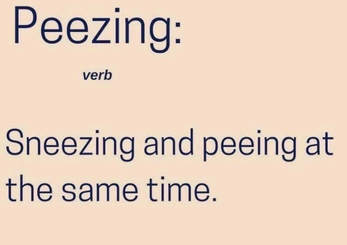
This is a passion of mine, as these ailments can interfere with living a healthy, comfortable life in which you can play with your kids and connect with your spouse.
As I have been seeing more and more people with these issues, I frequently get asked questions or told various things that someone may have heard that will “set them up for success” or expectations with childbirth. These, I call myths.
Myth 1: “If I do my kegels/pelvic floor squeezes/strengthen my pelvic floor muscles, I can prevent urinary leakage.” Or – “Can you give me Kegels so I can prevent leakage?”
Muscles are amazing things – however if trained in a certain way, they can create tightness and actually create the leakage issues. In other words – kegels are not always the solution to leakage issues.
Myth 2: It is normal to sneeze/cough/laugh and “pee a little” after I have a kid.
This may be a common thing that occurs after childbirth, sometimes lasting for many days, months or years, however it is not normal. This is not a rite of passage into motherhood, rather a muscle coordination issue or even tissue injury that has occurred that now need rehabilitation. Think of spraining your ankle – if you do nothing about it, you may not get your range of motion, strength or previous activity level back. You need to rehab it. The pelvic floor is a group of muscles that need the same attention.
Myth 3: If I have a caesarean section, I will not experience urinary leakage.
Another myth of the world. A vaginal delivery does not guarantee you will have incontinence/leakage issues just as have a caesarean section will not prevent the issues. A c-section is abdominal surgery and there will be a period of time for healing to occur. Also, if the abdominal muscles are taking some time to heal, leakage issues can occur. It is part of our abdominal canister to control pressures.
Imagine a pop can – nothing can be poured out of it unless it has been opened. Our bodies are similar in that if all the muscles are working together and intact, we likely won’t have issues. However, as soon as there is a “hole” in a muscle, either due to surgery or injury, it can compromise our ability to maintain our abdominal pressure and thus stay dry.
These are just a few things that have been discussed with me. The world has many more that I intend to continue to address!
Any questions?? Never hesitate to contact me directly at [email protected]. I want for you to understand what is happening and feel in control (no pun intended) of your quality of life!
~Michelle, PT

 RSS Feed
RSS Feed